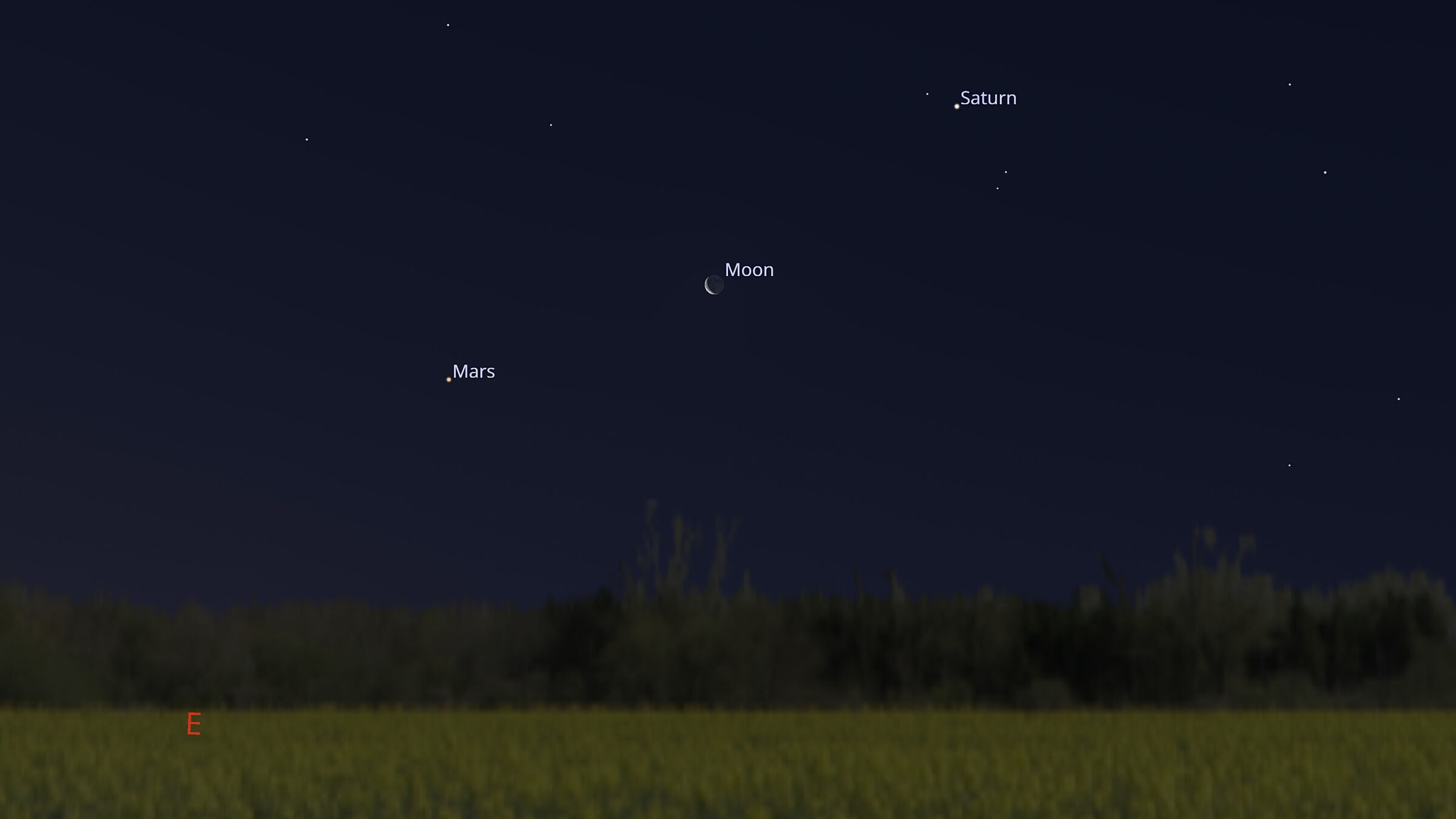What’s up in the night sky: May 2024
Welcome to our night sky monthly feature where we focus on easy and fun things to see in the night sky, mostly with just your eyes. This month: a pre-dawn planet party and a good meteor shower, particularly for the Southern Hemisphere, courtesy of Halley’s Comet.
First half of the month: Mercury is low in the pre-dawn east. It is highest on May 9.
All month: Yellowish Saturn is rising higher in the pre-dawn east as the month goes on.
All month: Reddish Mars is below the similarly bright Saturn in the pre-dawn east, getting higher as the weeks pass.
May 3: Moon near Saturn.

May 4-5: Eta Aquarid meteor shower peaks. The Eta Aquarids is an above-average meteor shower, with about 60 meteors per hour at its peak seen from a dark site. This meteor shower is best seen from the southern hemisphere, although a fair amount of activity can be seen from the northern hemisphere. A crescent Moon will provide little interference. The best viewing will be from a dark location after midnight. Though the peak is on the night of May 4 through 5, there are increased meteors for a few days before and after. This shower is caused by debris from Halley’s Comet.
May 5: The Moon is near Mars.
May 8: New Moon.

May 23: Full Moon.
May 31: The Moon is near Saturn.
Learn more about the Night Sky
Our journey to know the Cosmos and our place within it starts right outside our windows, in the night sky. Get weekly reports on what's visible and learn how to become a better backyard observer.

Bruce Betts
Chief Scientist / LightSail Program Manager for The Planetary Society
Read more articles by Bruce Betts


 Explore Worlds
Explore Worlds Find Life
Find Life Defend Earth
Defend Earth


